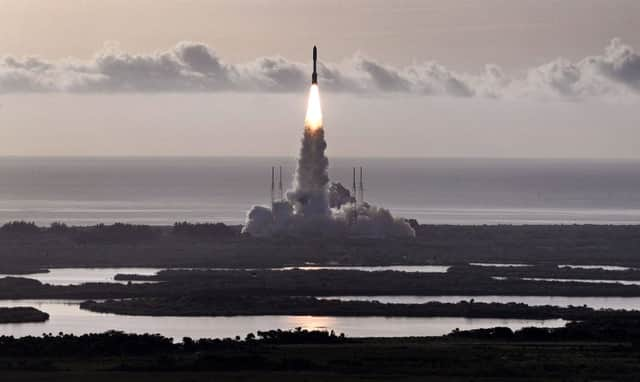NASA's Perseverance rover will soon land on Mars - here's how to watch it live
This article contains affiliate links. We may earn a small commission on items purchased through this article, but that does not affect our editorial judgement.


NASA’s Perseverance rover is just hours away from landing on Mars.
The spacecraft set off from earth seven months ago and is now set to enter the most perilous stage of its journey – the landing.
Advertisement
Hide AdAdvertisement
Hide AdThe final moments of Perseverance’s journey is being described as “seven minutes of terror”, during which the craft will enter the Martian atmosphere with the sole use of its on-board controls. Due to an 11-minute communication delay, Nasa experts will be unable to correct any errors.
With the mission costing $2.4 billion and countless labour hours there’s a lot at stake – and whether it ends in triumph or disaster you will be able to watch the landing unfold live.
What time will the rover land?
Perseverance is scheduled to land on the red planet at 8.43pm (GMT) on February 18.
How can I watch the landing?
You can stream the event live from NASA’s official website with live coverage getting underway at 7.15pm (GMT).
Advertisement
Hide AdAdvertisement
Hide AdThe space agency will be hosting live footage of the landing on their Youtube channel, and their Twitter and Facebook feeds.
Why is the rover going to Mars?
Perseverance will land in the Jezero crater, a 28-mile (45km) site which contains sediments of an ancient river delta, a location where evidence of past life could be preserved if it ever existed on the planet.
Perseverance will carry instruments geared to search for the carbon building blocks of life and other microbes and to reconstruct the geological history of the Red Planet.
The instruments will analyse samples from the surface, with selected samples collected by drilling down to 2.8in (7cm) and then sealed in special tubes and stored on the rover.
Advertisement
Hide AdAdvertisement
Hide AdWhen the rover reaches a suitable location, it will drop the tubes on the surface of Mars to be collected by a future retrieval mission, which is currently being developed.
The Sample Fetch rover, being developed by Airbus, will collect the samples and take them to the Nasa Mars Ascent vehicle.
Nasa and European Space Agency (ESA) scientists are planning how the samples will be curated on their return.